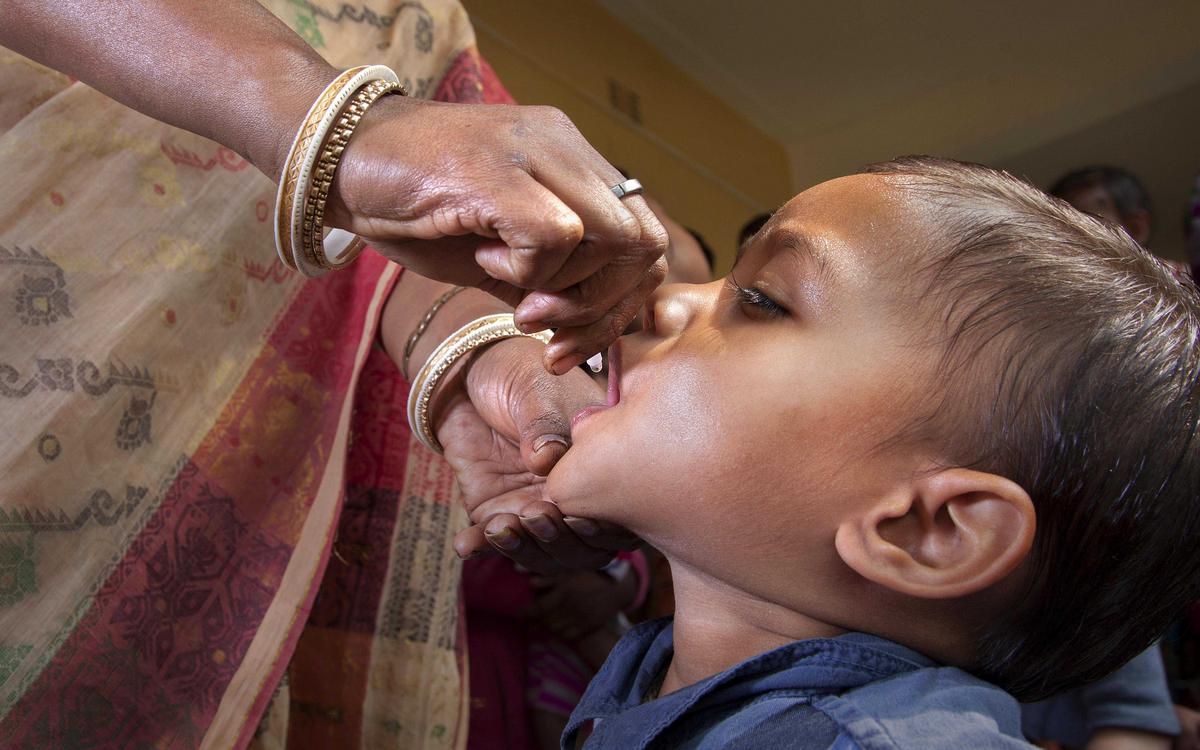Dr. Olakunle Alonge to lead new grant to translate polio eradication successes to other global health initiatives
Q&A WITH DR. ALONGE, ASSISTANT PROFESSOR, INTERNATIONAL HEALTH, JHSPH
November 16, 2017
Many successful strategies and programs have been developed and implemented in the global effort to eradicate polio. Fewer than 40 cases were reported in 2016, down from over a quarter of a million a year in the 1980s. Total eradication now looks to be on the horizon. Once achieved, resources will be redirected to other public health priorities. As focus turns away from polio, decades’ worth of valuable lessons learned could vanish along with the disease.

The Johns Hopkins Bloomberg School of Public Health recently received a 5-year, $3.7 million grant from the Bill & Melinda Gates Foundation to lead a global, multidisciplinary team to help prevent decades of practical knowledge from being lost. Dr. Olakunle Alonge, an assistant professor of International Health at the Bloomberg School, will lead the effort. Working with the Global Polio Eradication Initiative, his team will document, preserve, and disseminate the polio program’s best practices to help inform future global health policy and implementation. Collaborating with academic institutions from around the world, his team will also develop short courses and hands-on clinics for public health students and professionals.
Why is it important to collect lessons from polio eradication now?
The Global Polio Eradication Initiative has been very successful, and we’re now close to eradicating polio from the world. Without an active strategy to map, package and deliver the knowledge from the global polio eradication efforts to other programs and global health actors, I’m afraid that these knowledge assets may not find any useful purpose beyond the end of the polio campaign, which could come to an end within a few years.
In the past we have failed to capture lessons learned from successful initiatives (e.g. the global smallpox eradication), and end up recreating processes, systems and strategies involved with those initiatives, rather than repurposing them. This approach to global health services delivery is grossly inefficient in terms of funding and human resources, and portends a missed opportunity for human development.
In what other public health areas could polio eradication best practices be useful?
They are especially relevant to issues around strengthening immunization systems, public health emergency response, primary health care services delivery, and the eradication of other diseases such as malaria and infectious diseases of poverty. We need to understand what worked, where and how it worked, and communicate those lessons to a broad public health audience. Harnessing polio eradication best practices could unlock implementation bottlenecks for health service delivery efforts in some of the most disadvantaged areas of the world.
How will your project collect and document these lessons?
We’ll be conducting a variety of activities from literature reviews to in-person surveys. I’m very excited that frontline workers involved in the polio eradication efforts will be an intricate part of the process. Their first-hand knowledge has been critical in the fight against polio. I think it’s important not only to learn from them but help create a process for those workers to transition their skills to other global health priorities.
How will you disseminate your findings?
Our team includes academic institutions from around the world. We’ll be developing short courses that can be integrated into their academic programs, as well as at the Bloomberg School. Reaching the next generation of public health professionals is key. Eventually, we’ll be organizing clinics for policymakers and professionals. Participants will learn how to apply polio eradication lessons to the issues they face in their current work.
Implementation Science for Global Health: Lessons Learned from the Global Polio Eradication Initiative begins December 2017 and is funded through 2022. Other JHSPH faculty involved in the project include David Peters, Sara Bennett, Andrea Ruff, William Brieger, William Weiss, and Daniela Rodriguez. The project will involve primary partners in seven countries including Nigeria, India, Afghanistan, Ethiopia, Democratic Republic of Congo, Bangladesh, and Indonesia.
(November 16, 2017)
